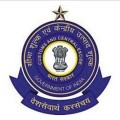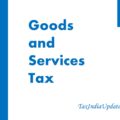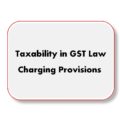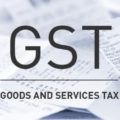Reverse Charge Mechanism in GST Regime: Every Government wants speedy and smooth collection of its taxes from public. The ‘Reverse Charge Mechanism’ is nothing but a system of Government to collect its Taxes from easy point. The term ‘Reverse Charge’ is defined under the Central Goods and Service Tax Act, 2017 as under:
Section 2. Definitions. –
(98) “reverse charge” means the liability to pay tax by the recipient of supply of goods or services or both instead of the supplier of such goods or services or both under sub-section (3) or sub-section (4) of section 9, or under sub-section (3) or sub-section (4) of section 5 of the Integrated Goods and Services Tax Act;
In the Indian GST law (CGST, IGST, SGST and UTGST) it is provided that apart from supply of Goods or Services received from un-registered person, the Government may notify certain Goods and Services on which recipient of such Goods or Services would be liable to pay tax under Reverse Charge.
Charging Provisions of Reverse Charge Mechanism in GST
The Central Goods and Service Tax Act 2017
Section 9. Levy and collection:
(3) The Government may, on the recommendations of the Council, by notification, specify categories of supply of goods or services or both, the tax on which shall be paid on reverse charge basis by the recipient of such goods or services or both and all the provisions of this Act shall apply to such recipient as if he is the person liable for paying the tax in relation to the supply of such goods or services or both.
(4) The central tax in respect of the supply of taxable goods or services or both by a supplier, who is not registered, to a registered person shall be paid by such person on reverse charge basis as the recipient and all the provisions of this Act shall apply to such recipient as if he is the person liable for paying the tax in relation to the supply of such goods or services or both.
The Integrated Goods and Services Tax Act 2017
Section 5. Levy and collection:
(3) The Government may, on the recommendations of the Council, by notification, specify categories of supply of goods or services or both, the tax on which shall be paid on reverse charge basis by the recipient of such goods or services or both and all the provisions of this Act shall apply to such recipient as if he is the person liable for paying the tax in relation to the supply of such goods or services or both.
(4) The integrated tax in respect of the supply of taxable goods or services or both by a supplier, who is not registered, to a registered person shall be paid by such person on reverse charge basis as the recipient and all the provisions of this Act shall apply to such recipient as if he is the person liable for paying the tax in relation to the supply of such goods or services or both.
So, in nutshell the reverse charge will apply on followings:
- Supply of Notified Taxable Goods and Services
- Supply of Taxable Goods and Services by Unregistered Person to a Registered Person
- Import of Goods and Services from a person out side India.
The Central Government and the State Governments are empowered to issue notifications to give effect to certain provisions such as goods and services that would be liable to tax on reverse charge basis, supplies that are exempted from tax, supply of goods that shall be treated as supply of services, etc. For a notification to be valid under GST, it must be published in the Official Gazette of India, as published by the Government of India’s Department of Publication, Ministry of Urban Development.
Notified Taxable Services on which Reverse Charge in Applicable
The existing law of Service Tax (Finance Act, 1994) is provides list of Taxable Services on which Service Tax has to be deposited by Service Recipient with Government exchequer in terms of Notification No.30/2012-ST dated 20-06-2012. The list of specified services are as under:
- Insurance Agent of Insurance Company.
- Recovery Agent of Banks, NBFC etc.
- Lottery Tickets Agent
- Goods Transport Agency Services
- Sponsorship
- Services of Arbitral Tribunal
- Legal Services from Advocate or firm of Advocates
- Director of Body Corporate
- Services by Government or Local Authority
- Motor Vehicle designed to Carry Passengers
- Supply of Manpower or Security Services
- Works Contract Service
- Import of Services
- Services of Aggregator through E-Commerce
- Transportation of goods by a vessel from a place outside India up to the customs station of clearance in India
Recently in GST Council meetings held on 19-05-2017 & 11-06-2017, list of services has been approved on which Reverse Charge mechanism will apply. Following chart is give to understand the Reverse Charge Mechanism (RCM) under GST with comparison to Existing Service Tax Law:
| Services on Which RCM will continue under GST Law | Services on which RCM not applicable under GST Law | Services which are First time covered under RCM in GST Law |
| 1.Insurance Agent | 1.Agent of lottery tickets | 1.Transfer or permitting the use or enjoyment of Copyrights |
| 2. Recovery Agent Banks etc. | 2.Supply of Manpower or Security Services | 2.Job work [Jewellery Sector] |
| 3. Goods Transport Agency | 3.Works Contract Service | |
| 4.Sponsorship | ||
| 5.Arbitral Tribunal | ||
| 6.Advocate or firm of advocates | ||
| 7.A Director of a company or a body corporate | ||
| 8.Government or local authority | ||
| 9.Import of Services | ||
| 10.Aggregator | ||
| 11.Motor Vehicle | ||
| 12.Transportation of goods by a vessel from a place outside India up to the customs station of clearance in India |
Key points of Reverse Charge Mechanism under GST Law
- In case of purchase of goods from unregistered dealers the receiver of goods would be liable to pay tax under reverse charge.
- Persons required to pay tax under reverse charge are required to obtain registration under the GST whether or not they make any outward supplies, and without having regard to the threshold limits for registration – in case of notified goods and services.
- Composition suppliers being recipients of supplies on which tax is payable on reverse charge basis, will have to remit tax at the applicable rates, and not the concessional composition tax rates.
- The recipient paying tax on reverse charge basis, should issue a ‘payment voucher’ at the time of making paying to the supplier.
- Since ‘Output Tax’ excludes tax payable under reverse charge basis, accordingly in our view the tax payable under reverse charge basis must be discharged by cash only and credit cannot be utilized for discharging such a liability. The relevant section is under:
Section. 2 (82) “output tax” in relation to a taxable person, means the tax chargeable under this Act on taxable supply of goods or services or both made by him or by his agent but excludes tax payable by him on reverse charge basis;
- The recipient paying tax on reverse charge basis on account of effecting inward supplies from unregistered persons, should issue an invoice in respect of the goods or services inwarded, at the time of receipt of such goods or services.
No Concept of Partial Reverse Charge in GST Law
Unlike to Service Tax Law, there is no concept of Partial Reverse Charge in GST Law. The recipient of taxable supply has to pay entire liability of GST on specified Goods or Services. Whereas the Service Tax law have two type of Reverse Charge one in which entire liability of Service Tax is to be paid by Service Recipient and in second type the specified percentage of applicable Service Tax is to be paid by Service Recipient and Service Provider.
Time of Supply of ‘Goods’ under Reverse Charge in GST
Where tax is payable on reverse charge basis, the time of supply is appointed to be the earliest of
- date of receipt of goods,
- date of payment or
- 30 days from the date of issue of invoice by the supplier.
If for any reason, one or these three dates cannot be determined then the time of supply will be the date of recording the supply in the books of the recipient.
Time of supply for ‘Services’ under Reverse Charge in GST
In case of reverse charge, the time of supply shall be the earliest of the following dates—
(a) The date of payment
(b) The date immediately after 60 days from the date of issue of invoice by the supplier
If it is not possible to determine the time of supply under (a) or (b), the time of supply shall be the date of entry in the books of account of the receiver of service.
GST Reverse Charge
Reverse Charge Mechanism in GST
Generally, the supplier of goods or services is liable to pay GST. However, in specified cases like imports and other notified supplies, the liability may be cast on the recipient under the reverse charge mechanism. Reverse Charge means the liability to pay tax is on the recipient of supply of goods or services instead of the supplier of such goods or services in respect of notified categories of supply.
There are two type of reverse charge scenarios provided in law. First is dependent on the nature of supply and/or nature of supplier. This scenario is covered by section 9 (3) of the CGST/SGST (UTGST) Act and section 5 (3) of the IGST Act. Second scenario is covered by section 9 (4) of the CGST/SGST (UTGST) Act and section 5 (4) of the IGST Act where taxable supplies by any unregistered person to a registered person is covered.
As per the provisions of section 9(3) of CGST / SGST (UTGST) Act, 2017 / section 5(3)of IGST Act, 2017, the Government may, on the recommendations of the Council, by notification, specify categories of supply of goods or services or both, the tax on which shall be paid on reverse charge basis by the recipient of such goods or services or both and all the provisions of this Act shall apply to such recipient as if he is the person liable for paying the tax in relation to the supply of such goods or services or both.
Similarly, section 9(4) of CGST / SGST (UTGST) Act, 2017 / section 5(4) of IGST Act, 2017 provides that the tax in respect of the supply of taxable goods or services or both by a supplier, who is not registered, to a registered person shall be paid by such person on reverse charge basis as the recipient and all the provisions of this Act shall apply to such recipient as if he is the person liable for paying the tax in relation to the supply of such goods or services or both. Accordingly, wherever a registered person procures supplies from an unregistered supplier, he need to pay GST on reverse charge basis. However, supplies where the aggregate value of such supplies of goods or service or both received by a registered person from any or all the unregistered suppliers is less than five thousand rupees in a day are exempted. ( Notification 8/2017-Central Tax (Rate) dated 28.06.2017). However, vide notification no.38/2017-Central Tax (Rate) dated 13.10.2017, (corresponding IGST notification no.32/2017-Integrated Tax (Rate) dated 13.10.2017) all categories of registered persons are exempted from the provisions of reverse charge under 9(4) of CGST / SGST (UTGST) Act, 2017 / section 5(4) of IGST Act, 2017, till 31.03.2018. This exemption is available only till 31.03.2018.
The provisions of section 9(4) of the CGST Act, 2017, will not be applicable to supplies made to a TDS deductor in terms of notification no.9/2017-Central Tax (Rate) dated 28.06.2017. Thus, Government entities who are TDS Deductors under Section 51 of CGST Act, 2015, need not pay GST under reverse charge in case of procurements from unregistered suppliers.
Registration: A person who is required to pay tax under reverse charge has to compulsorily register under GST and the threshold limit of Rs. 20 lakh (Rs. 10 lakh for special category states except J & K) is not applicable to them.
ITC:
A supplier cannot take ITC of GST paid on goods or services used to make supplies on which the recipient is liable to pay tax.
Time of Supply:
The Time of supply is the point when the supply is liable to GST. One of the factors relevant for determining time of supply is the person who is liable to pay tax. In reverse charge, recipient is liable to pay GST. Thus time of supply for supplies under reverse charge is different from the supplies which are under forward charge.
In case of supply of goods, time of supply is earliest of –
a) date of receipt of goods; or
b) date of payment as per books of account or date of deb- it in bank account, whichever is earlier; or
c) the date immediately following thirty days from the date of issue of invoice or similar other document.
In case of supply of services, time of supply is earliest of –
a) date of payment as per books of account or date of deb- it in bank account, whichever is earlier; or
b) the date immediately following sixty days from the date of issue of invoice or similar other document.
Where it is not possible to determine time of supply using above methods, time of supply would be date of entry in the books of account of the recipient.
Compliances in respect of supplies under reverse charge mechanism:
1. As per section 31 of the CGST Act, 2017 read with Rule 46 of the CGST Rules, 2017, every tax invoice has to mention whether the tax in respect of supply in the invoice is payable on reverse charge. Similarly, this also needs to be mentioned in receipt voucher as well as refund voucher, if tax is payable on reverse charge.
2. Maintenance of accounts by registered persons: Every registered person is required to keep and maintain records of all supplies attracting payment of tax on reverse charge
3. Any amount payable under reverse charge shall be paid by debiting the electronic cash ledger. In other words, reverse charge liability cannot be discharged by using input tax credit. However, after discharging reverse charge liability, credit of the same can be taken by the recipient, if he is otherwise eligible.
4. Invoice level information in respect of all supplies attracting reverse charge, rate wise, are to be furnished separately in the table 4B of GSTR-1.
5. Advance paid for reverse charge supplies is also leviable to GST.The person making advance payment has to pay tax on reverse charge basis.
Supplies of goods under reverse charge mechanism:
| S/ No. | Description of supply of Goods | Supplier of goods | Recipient of Goods |
| 1. | Cashew nuts, not shelled or peeled | Agriculturist | Any registered person |
| 2. | Bidi wrapper leaves (tendu) | Agriculturist | Any registered person |
| 3. | Tobacco leaves | Agriculturist | Any registered person |
| 4. | Silk yarn | Any person who manufactures silk yarn from raw silk or silk worm cocoons for supply of silk yarn | Any registered person |
| 4A. | Raw cotton | Agriculturist | Any registered person |
| 5. | Supply of lottery | State Government, Union Territory or any local authority | Lottery distributor or selling agent |
| 6. | Used vehicles, seized and confiscated goods, old and used goods, waste and scrap | Central Government, State Government, Union territory or a local authority. | Any registered person |
Supplies of services under reverse charge mechanism:
| S/ No. | Description of supply of Service | Supplier of service | Recipient of service |
| 1. | Any service supplied by any person who
is located in a non-taxable territory to any person other than non- taxable online recipient. |
Any person located in a
non-taxable territory |
Any person located in the taxable
territory other than non- taxable online recipient. |
| 2. | GTA Services | Goods Transport Agency (GTA) who has not paid integrated tax at the rate of 12% | Any factory, society, co- operative society, registered person, body corporate, partnership firm, casual taxable person; located in the taxable territory |
| 3. | Legal Services by advocate | An individual advocate including a senior advocate or firm of advocates | Any business entity located in the taxable territory |
| 4. | Services supplied by an arbitral tribunal to a business entity | An arbitral tribunal | Any business entity located in the taxable territory |
| 5. | Services provided by way of sponsorship to any body corporate or partnership firm | Any person | Any body corporate or partnership firm located in the taxable territory |
| 6.
|
Services supplied by
the Central Government, State Government, Union territory or local authority to a business entity excluding, – (1) renting of immovable property, and (2) services specified below- (i) services by the Department of Posts by way of speed post, express parcel post, life insurance, and agency services provided to a person other than Central Government, State Government or Union territory or local authority; (ii) services in relation to an aircraft or a vessel, inside or outside the precincts of a port or an airport; (iii) transport of goods or passengers. |
Central Government,
State Government, Union territory or local authority
|
Any business entity located
in the taxable territory
|
| 7.
|
Services supplied by a
director of a company or a body corporate to the said company or the body corporate |
A director of a company or a
body corporate
|
The company or a body
corporate located in the taxable territory
|
| 8.
|
Services supplied by an insurance
agent to any person carrying on insurance business |
An insurance agent
|
Any person carrying on insurance
business, located in the taxable territory |
| 9.
|
Services supplied by a recovery agent
to a banking company or a financial institution or a non-banking financial company |
A recovery agent
|
A banking company or a financial
institution or a non-banking financial company, located in the taxable territory |
| 10.
|
Services supplied by a
person located in non- taxable territory by way of transportation of goods by a vessel from a place outside India up to the customs station of clearance in India |
A person located in
non-taxable territory
|
Importer, as defined in
clause (26) of section 2 of the Customs Act, 1962(52 of 1962), located in the taxable territory
|
| 11.
|
Supply of services by an
author, music composer, photographer, artist or the like by way of transfer or permitting the use or enjoyment of a copyright covered under section 13(1) (a) of the Copyright Act, 1957 relating to original literary, dramatic, musical or artistic works to a publisher, music company, producer or the like |
Author or music
composer, photograph her, artist, or the like
|
Publisher, music
company, producer or the like, located in the taxable territory
|
| 12. | Supply of services by the members of Overseeing Committee to Reserve Bank of India | Members of Overseeing
Committee constituted by the Reserve Bank of India |
Reserve Bank of
India. |





